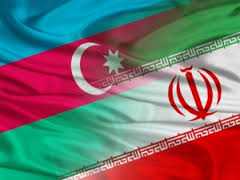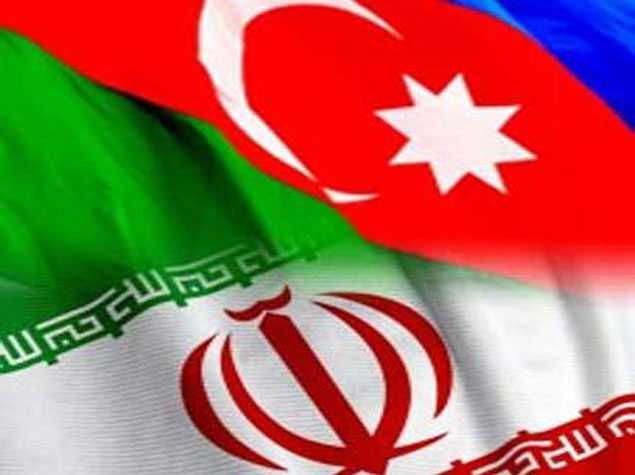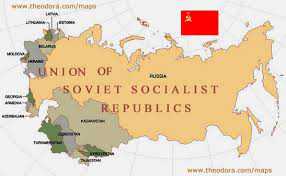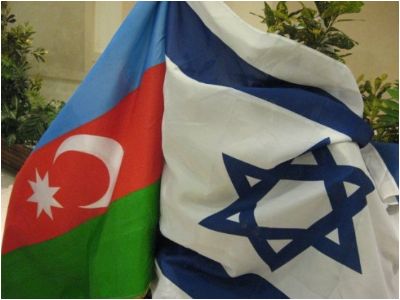 Vladimir Makei is Minister of Foreign Affairs of the Republic of Belarus (since August 2012).
Vladimir Makei is Minister of Foreign Affairs of the Republic of Belarus (since August 2012).
The issue of human rights has been looming large on the global politics agenda over the past two decades. Indeed, international relations have been increasingly viewed and conducted through the prism of human rights. Furthermore, human rights have been elevated by the international community in terms of importance to peace and security. This shift in global attitudes was duly reflected in the UN documents. In September 2005, at its 60th session, the UN General Assembly adopted the World Summit Outcome Resolution 60/1, which called, inter alia, for strengthening UN human rights mechanisms.
Meanwhile, no other issue on the international agenda appears currently to be as much politicized and divisive as human rights. The division basically relates to the primacy that different states and groups of states attach either to individual or collective human rights. This article attempts to demonstrate that approaches to human rights stem from the countries’ specific historical experience of development, which in some cases forged a centralized and collective nature of societies, whereas in others they were conducive to decentralization and individualism. Understanding the historical reasons behind other countries’ different stance on human rights may contribute to non-confrontational international relations.
HUMAN RIGHTS HISTORY: A BRIEF OVERVIEW
Human rights ostensibly trace their origin to numerous world religions, which taught individuals to respect other individuals and treat them in a humane way. Nonetheless, Arthur M. Schlesinger Jr. argued in The Cycles of American History (1999): “Since religion [Christianity] had traditionally ordained hierarchy and inequality, and since it had traditionally disdained earthly happiness, early human rights formulations, as with Voltaire and later in the French Revolution, had a markedly anti-religious cast.”
An important antecedent of human rights, which goes back to the classical Greek and Roman traditions, was the idea of natural rights ? that is, some rights that come to people naturally. Yet the notion that natural rights have immediate, specific and universal application gained a foothold only a few centuries ago. In particular, the U.S. Declaration of Independence (1776) and subsequent Constitution were premised on the idea of natural rights.
The British anti-slavery campaign of the late 18th and early 19th century further contributed to spreading the idea of natural rights, and forestalled the West’s human rights activism in the 20th century.
Another milestone in the human rights history was the U.S. Civil War that ended slavery in that country, although racial discrimination persisted there for another century. Even though the U.S. was built upon the idea of natural rights, these rights were accorded only to the white population, since the black population was regarded to relate to the whites’ “property rights,” a category that at that time was in fact an inalienable part of natural rights.
The next critical point in the history of human rights was the UN Charter of 1945, and more specifically, the Universal Declaration of Human Rights endorsed by the UN General Assembly in December 1948. The latter document was spurred by the tragic memory of the immense human losses suffered during WWII. Interestingly, the Universal Declaration referred to civil and political rights, as well as economic, social and cultural ones, although the constituency for the second set of rights was not as strong in 1948 as it would emerge later, in the 1960s, when a wave of decolonization swept the world.
The UN Declaration was followed by a series of subsidiary UN conventions, including two Covenants ? On Civil and Political Rights and On Economic, Social and Cultural Rights, which were adopted in 1966 and entered into force for the signatory states in 1976.
During the Cold War, the issue of human rights largely remained in the background of great power politics. Throughout much of that period, the major antagonists, despite their opposing ideologies, placed their mutual relations on the logic of pragmatism and Realpolitik rather than on ideological underpinnings and human rights. This approach was best manifest in the detente policy.
Nevertheless, the idea of human rights was inherent in the Cold War, as the Western world assailed the communist world for abuse of people’s civil and political freedoms and the communist countries attacked their opponents for neglect of people’s social and economic rights. A marked departure from the Realpolitik pattern occurred under President Carter, who significantly elevated the issue of human rights in U.S. foreign policy, and especially under Reagan, who put ideology over pragmatism. According to Arthur M. Schlesinger Jr., the Reagan administration, more than any other U.S. administration, used a double standards approach to human rights: it condemned totalitarian regimes like the USSR for abuse of human rights, while condoning their violation by authoritarian regimes that happened to be U.S. allies.
With the end of the Cold War human rights acquired new importance. A major hallmark of that period was the 1993 World Conference on Human Rights held in Vienna ? the largest ever gathering on human rights. The Conference adopted the Vienna Declaration that confirmed the equal status of individual political and civil rights, and collective economic, social and cultural rights.
Notwithstanding, one fault line at the conference was clearly drawn between the Western nations, which proclaimed a universal meaning to human rights, and developing nations, which argued that human rights should allow for a different interpretation in non-Western cultures and that attempts to impose a universal definition amounted to interference in their internal affairs.
In the wake of the Conference, a new UN office was established ? the UN High Commissioner for Human Rights. Finally, in 2006 the UN Human Rights Council was established to replace the UN Commission on Human Rights that had functioned since 1946. The latter move was aimed to put an end to the Commission’s politicization, but failed to do so. The issue of human rights continues to increasingly divide countries across the world.
EURASIAN SOCIETIES: CENTRALIZATION AND A SENSE OF COMMUNITY PREVAIL
First, a short note on definitions. Although the notion ‘Eurasia’ generally refers to the whole of Europe and Asia, for purposes of the present analysis ‘Eurasia’ stands here for Asia in its entirety and only those parts of Europe which include the western part of the Commonwealth of Independent States and Turkey. Europe proper is discussed in a separate section below.
Francis Fukuyama in his book The Origins of Political Order advances the point that biological similarity of humans explains why separate societies came to similar political orders in the distant past. Specifically, all earlier sedentary societies that came to rely on agriculture were tribal societies in a sense that political and economic hierarchies were overwhelmingly structured in them along the lines of kinship and tribal ties. Fukuyama defines this phenomenon as “tribalism” or “paternalism”.
However, the leaders in those societies at some point came to understand that tribalism and paternalism stood in the way of societies’ effective functioning since they served the interests of selected few in appropriating the resources that could otherwise be employed for the benefit of entire societies, most crucially in terms of economic development and military power. Essentially, tribalism and paternalism represented an earlier form of government corruption.
Hence, early societies’ leaders embraced the need to fight tribalism. This was basically done by replacing kinship and tribal ties in governance with meritocracy. In other words, the key to societal successful development was to make it rely not on factors of birth or inherited wealth, but rather on the individual’s personal characteristics, such as intelligence, knowledge, integrity, commitment, etc. The extent to which societies eventually succeeded in that task determined their internal structure (centralized or decentralized), internal nature (collectivist or individualist), and, later, their attitudes to human rights.
According to Fukuyama, China was the first society to successfully implement the task. In the 3rd century BC it was able by action from the top to establish a strong centralized state based on meritocracy. Europe, by contrast, was able to repeat a similar path only a millennium later.
Fukuyama further argues that China’s development was ever since shaped by two concepts or doctrines. First, it was what he called “Legalism,” which sought to strengthen the state and tie individuals to it. Legalism’s success was possible by the meritocratic nature of China’s system of governance. Second, Legalism went hand in glove with a philosophical concept of Confucianism that emphasized such virtues as morality, family, tradition, community.
Although at certain periods one doctrine dominated the other, they were not in conflict, but rather supplemented each other. As Henry Kissinger claims in his bookOn China (2011), the Confucian philosophy was about redemption of the state through virtuous individual behavior. Thus, Legalism and Confucianism both served to shape China as a centralized society with a strong sense of community. Basically, these two concepts are in work today and embody China’s current “Harmonious Society”.
Individualism has never developed in that society. Instead, as Samuel P. Huntington notes, “For East Asians, East Asian [economic] success is particularly the result of the East Asian cultural stress on the collectivity rather than the individual.” He further argues that “the Confucian ethos pervading many Asian societies stressed the values of authority, hierarchy, the subordination of individual rights and interests, the importance of consensus, the avoidance of confrontation, ‘saving face,’ and, in general, the supremacy of the state over society and of society over the individual.”
A very peculiar way to fight paternalism developed in the Ottoman Empire. Fukuyama notes that in their military campaigns the Ottomans enslaved Christian boys, whom they educated for future service in political and military administrations. The Mamluks, which were a ruling caste in Egypt in the centuries past, adhered to the same practice. This pattern worked successfully to a certain point as the Ottoman Empire was able to effectively utilize that human reserve with a view to centralizing and increasing its power.
However, as the Ottomans ran up against increasingly assertive European countries and Persia in the 17th century, their scope for territorial expansion significantly diminished. As a result, the Ottomans soon succumbed to internal paternalism, which, among other factors, ultimately led to the Empire’s disintegration. Eventually, societies in the Asia Minor and the Middle East acquired a mixed record of state centralization/decentralization, but retained to a substantial degree the paternal nature of their societies. Consequently, individualism could not gain much traction there.
As for Russia and Eastern Slavs, the development of their type of society up until the 13th century was in many respects similar to that of other European countries. In both Eastern and Western Europe, it was mainly associated with the establishment of numerous more or less decentralized political principalities. Yet the Mongol invasion of Eastern Europe in the 13th-14th centuries predetermined subsequent development of Eastern Slavs in a way different from those of its Western neighbors. The Mongol conquest significantly retarded Russia’s development, as it curtailed its ties with both Byzantium and Western Europe. As a result, as Fukuyama posits, “both Renaissance and Reformation passed Russia by.”
Another critical juncture for Russia was the period of the Troubled Times, which came in the early 17th century as a result of royal succession fighting. The Troubled Times brought about a virtual disintegration and subjugation of the Russian state by foreigners.
These two historical factors served to imbue the Russian society with the kind of its own doctrine of “Legalism,” that is, the need to centralize the state, lest it again fell prey to external forces. This, in turn, shaped a particular form of Russia’s governance. According to Fukuyama, Russian aristocrats, bearing in mind the Mongols and the Troubled Times, feared a weak state, thus they let the monarchy solidify its hold on power. More than that, this sense of insecurity was conducive to the situation, in which Russia’s lower gentry came to be subordinated directly to the monarchy rather than to top aristocracy, as was the case at that time in Western Europe.
So, viewed in the political perspective, specific historical circumstances determined the establishment by Russians of a highly centralized state, which was also replicated in some territories that came under Russia’s control or influence in later periods. Furthermore, the same historical circumstances produced a socially critical effect, as well. Namely, they imbued Russians with a very strong feeling of “commonality,” a conviction that only by standing together they could overcome difficulties and make progress. It was, in a sense, Russia’s way of achieving redemption of the state through virtuous behavior of its people.
Even though Russian and Eastern Slav societies, starting with Peter the Great in the 18th century, came to be divided by the two competing visions of their future associated respectively with Westernizers and Slavophiles, the specific historical circumstances of the earlier centuries seem to have clearly and irrevocably shaped their centralized and collectivist nature.
EUROPE: ARRIVING AT DECENTRALIZATION AND INDIVIDUALISM
At the time when China succeeded in establishing a strong centralized state, Europe was dominated by the Roman Empire. But, unlike China, Rome’s governance structure was not based on meritocracy, but rather on patron-client relationships. As a result, the state was never sufficiently centralized. Furthermore, as British historian Chris Wickham argues in his book The Inheritance of Rome: A History of Europe from 400 to 1000 (2010), the erosion of that type of relationship by the 5th century AD was one of the main causes behind the Roman Empire’s collapse.
In the aftermath of the Roman Empire’s disintegration European development proceeded at a somewhat different pattern than other societies in Eurasia opted for. Above all, Europe’s specific path was circumstanced by its geography. According to American evolutionary biologist Jared Diamond (Guns, Germs, and Steel: The Fates of Human Societies, 1997), the European terrain with its numerous rivers, mountains and forests was conducive to the establishment of multiple decentralized political units, in contrast to Eurasia, whose more or less flat terrain was instrumental to setting there large centralized entities.
Next, Europe’s own peculiar path of development was influenced by the rise and consolidation of the Catholic Church. First, Fukuyama writes, “the Catholic Church was in a position to consolidate itself, because… Europe’s geography made its political map fragmented, and hence, there was no truly centralized force to effectively stand in the Church’s way.” Second, the Church succeeded, because, as Fukuyama suggests, it was able to overcome “paternalism” within itself through the reforms of Pope Gregory VII (reigned in 1073-1085). According to eminent British religious historian Diarmaid MacCulloch, Gregory VII realized a vision of a universal church, which clashed with German emperors’ vision of a universal Empire. As a result, Europe got a fragmented map of countries and authorities. This development effectively signified that European political and religious authorities had to coexist and share power. They got accustomed to live in a decentralized environment, where they had to take into consideration others’ views. Thus, since the Middle Ages a decentralized Europe did not develop that sense of community that was characteristic of the more centralized Eurasian societies.
Another development that served to entrench that trend was the Black Death that struck Western Europe in the mid-14th century. According to Fukuyama, the Black Death significantly reduced Europe’s population, which, in turn, forced the authorities to make concessions in the interest of a scarce labor force. This effectively entailed the abolition of serfdom in Western Europe and increased individual freedom, whereas serfdom in Eastern Europe went on for another several centuries.
Yet decentralization produced an advantage of its own. Indeed, the geographical, political and religious conditions that made Europe decentralized also served to propel its development at a pace far exceeding that of other societies. Fukuyama argues that a decentralized Europe faced intense internal competition that drove its accelerated development, while centralized consolidated Eurasian empires did not face such a competitive environment, hence they had no incentive for perfection.
Niall Ferguson in his famous book Civilization: The West and the Rest (2011) claims that European creative competition spurred by the continent’s decentralized nature, allowed Europe to make a quantum leap forward in its development. Competition bolstered another five factors ? science, property rights, medicine, the consumer society, and the work ethic. All taken together, these factors, which Ferguson calls the “six killer applications,” allowed the West (Europe and European descendants in North America and Austrasia) to significantly outpace the rest of the world in development. This all led to the Industrial Revolution in Europe by the early 19th century, which empowered it to dominate and impose its values on the rest.
Moreover, Europe’s competitive environment was also conducive to social developments associated ? in a succeeding order ? with the Renaissance, the Reformation, the Enlightenment and the French Revolution, which all served to increase and entrench the individual character of European societies. It seems that the Reformation was of particular significance in this regard. American political scientist Walter Russell Mead in God and Gold: Britain, America and the Making of the Modern World (2007) advances the point that the Reformation’s slogan “Scripture alone” led to different interpretations of the Bible, to the diversity of religious opinions, which served to emphasize the primacy of particular (individual) over general (common).
Finally, it seems that the Western Cultural Revolution of the 1960s, as eminent British historian Eric Hobsbawm argues in The Age of Extremes: 1914-1991(1994), was yet another factor in the string of trends, developments and events that bolstered individualism and individual freedom at the expense of societal cohesion.NORTH AMERICA: FOLLOWING IN EUROPE’S FOOTSTEPS, BUT IN ITS OWN WAY
Like in Europe, it was geography above all that served as a key factor in shaping a specific pattern of North America’s development.
Daron Acemoglu and James A.Robinson in their study Why Nations Fail (2012) vividly depict how different the developmental patterns for South and North Americas were. Indeed, starting in the early 16th century, the Spanish and Portuguese were able to impose “extractive forms of governance” on locals in Southern and Central America. Crucially, these areas were very rich in resources, and also densely populated with indigenous people. Thus the colonizers subjugated the locals for the purpose of resource extraction.
However, a similar pattern could not be replicated in North America as it lacked both precious metals and dense local populations. Hence, as the locals could not be forced to work for the European settlers, the latter had to work themselves for their own sustenance. The English Virginia Company that was then in charge of North American colonization had, therefore, to provide incentives in order to attract new settlers to North America. As a result, strong hierarchy and centralization failed to take root there. These developments produced an egalitarian society based on settler agricultural middle class.
As economist William Easterly argues, as the basic food item produced by the majority of U.S. population (i.e. farmers) was wheat, such a situation contributed to establishing a middle-class society. In contrast, where the basic item was a rare commodity or product that was unavailable to all, and the profits were reaped by a small minority rather than by the majority, as was the case with sugar plantations in the Caribbean, such places, unlike the U.S.A., saw the entrenchment of inequality and oppressive forms of governance.
Given the prevailing logic of U.S. farmers to engage in constant frontier expansion with the view to ratcheting up their primarily wheat-based agricultural production, that dominant class developed a strong sense of individualism, distrust of government, and stood for the removal of any kinds of constraints.
Alexis de Tocqueville, a famous French connoisseur of an early America, in hisDemocracy in America written back in the 1830s, stressed the importance of individualism in the United States. He saw American individualism as self-withdrawal ? the tendency of each member of the community to “draw apart with his family and friends so that after he has thus formed a little circle of his own, he willingly leaves society largely to itself.”
Arthur M. Schlesinger Jr. provides an additional useful insight into the development of North American, specifically U.S., society, especially valuable in terms of its foreign policy impact. He argues that the United States’ politics was molded by a fusion of two traditions ? classic indoctrination and Calvinist judgment. As for the first tradition, the U.S. Founders had forebodings about America’s prospects because of previous negative experience with republican forms of government, but believed that their own experiment would escape the past pattern of classic republics’ doom. The second tradition was rooted in the Calvinist branch of Protestantism given that the first settlers were overwhelmingly religious Calvinist Puritans fleeing Europe. According to that tradition, as Schlesinger notes, “America was a redemptive history, a prophecy fulfilled, a new Israel.”
So, while the first tradition was secular, which “contemplated the United States as an experiment and was about realism, the second tradition was mystical, which took the U.S. as a destiny, and was about idealism.” Therefore, as Schlesinger argues: “The theory of America is [about] the divergence between the pragmatic conception of America as a nation, one among many, engaged in a risky experiment, and the mystical vision of America as destiny appointed by the Almighty to save unregenerate humanity.”
The author claims that, owing to the second tradition, “Americans acquired the image of the saviors of the world,” while “the theory of the elect nation, the redeemer nation, almost became the official creed.” “The United States was founded on the proclamation of ‘unalienable rights,’” he continues “and human rights have had ever since a peculiar resonance in the American mind. Americans have agreed since 1776 that the U.S. must be the beacon of human rights to an unregenerate world. The question has always been how America is to execute this mission. The early view was that America would redeem the world not by intervention but by example.”
Therefore, U.S. early foreign policy was guided more by pragmatism than by idealism. This attitude was best reflected in the famous speech by President John Quincy Adams (1821), in which he warned that “she [America] goes not abroad, in search of monsters to destroy”.
But the growth of American power, as Schlesinger posits, also confirmed the messianism of those who believed in America’s divine anointment: “that there was a couple of real monsters roaming the world encouraged a fearful tendency to look everywhere for new monsters to destroy.” This trend has been steadily on the rise ever since President Woodrow Wilson brought the U.S. into WWI under the slogan to “make the world safe for democracy.”
In Cycles of American History, written in the mid-1980s, Schlesinger was highly critical of U.S. mystical tradition. Specifically, he said that “Americans would do well to sober up from the ideological binge and return to the cold, grey realism of the Founding Fathers, men who lucidly understood the role of interest and force in a dangerous world and thought that saving America was enough without trying to save all humanity as well.”
Schlesinger proceeded from the assumption that the morality of states was inherently different from the morality of individuals, and the individual’s duty of self-sacrifice and the state’s duty of self-preservation were in conflict. Indeed, one cannot help but agree with this historian’s dictum that “saints can be pure, but states must be responsible.”
A similar position was expressed by another distinguished American, Reinhold Niebuhr, who argued in his Moral Man and Immoral Society (1932) that “a sharp distinction must be drawn between the moral and social behavior of individuals and of social groups, national, racial, and economic, and that this distinction justifies and necessitates policies which a purely individualistic ethic must always find embarrassing.”
To sum it up, a strong sense of individualism developed out of the first North American settlers’ pragmatic experience, along with a strong tendency for messianism spurred by their religious experience served to shape the United States’ proclivity to embrace a pro-active stance on human rights, especially on those aspects that relate to individual rights. The strength of that stance, however, has never been constant, but rather circumstanced by the size of U.S. power relative to other powers in the world. Not surprisingly, in the Unipolar Moment environment characterized by unrivalled American power, this country’s drive to advance individual political and civil rights has become as strong as ever.
A WAY TO END DIVISION
The human rights debates, which have been high in the past two decades, have proven futile. They increasingly make it clear that it is impossible to change attitudes that are enrooted in centuries-old specific cultural, religious, and other underpinnings. Indeed, the reason for the West and the United States in particular to pursue policies that seek to transpose Western values on other societies, that is, democracy and human rights, go back to the past tradition of active Protestant proselytizing elsewhere.
The policies of active proselytizing gained renewed momentum in the post-Cold War context, when Fukuyama’s “The End of History” thesis associated with liberal democracy’s victory over other forms of governance enjoyed a near-unanimous acceptance. As a result, Western countries became more imposing and less tolerant of others in the context of human rights in the United Nations, as well as in other international organizations.
This attitude was duly reflected in the activities of the UN Human Rights Commission throughout the 1990s and the new century’s first few years. Western countries’ efforts to “flog” a number of non-Western countries by means of country-specific resolutions on the situation of human rights in the latter group that, in fact, had more to do with political rather than humanitarian considerations, created such an atmosphere that inhibited cooperation among UN Member States on many important transnational issues.
On the eve of the UN 2005 Summit, however, the vast majority of states had realized that a state of affairs like that, when the issue of human rights essentially determined the levels of cooperation in other areas, could be counterproductive. As a sign of promising change, they all agreed to replace the UN Human Rights Commission with a UN Human Rights Council (HRC).
They also decided to abandon the practice of country-specific human rights resolutions, and, instead, place the consideration of this issue on an ostensibly neutral tool associated with the universal periodic review (UPR). In other words, each and every state must undergo UPR and all should cooperate on countries’ human rights shortcomings revealed by UPRs rather than continue to engage in confrontational policies. Regrettably, this supposedly cooperative pattern has failed to take hold thus far, as political and perhaps some other considerations pushed Western countries to revert in the HRC to the previous practices, inherent to the UN Human Rights Commission. As a result, country-specific resolutions on human rights have been brought into usage again, whereas UPRs permeated with “traditional” individual vs. collective rights divisions, slowly but surely started to lose their attractiveness.
Worryingly, since the West’s opponents, due to their own historically established societal mindsets, involved themselves more in building domestic peace and harmony than in proselytizing their values, it may appear to an ordinary observer that they have been on the defensive and, hence, that collective rights have been somehow lower in importance than individual rights. Yet this is a dangerous and flawed perception, which, regrettably, has captured to a large extent the human rights discourse over the past few decades.
What one side has been vigorously advancing as purportedly being universal in nature, has in fact been nothing more than a mere reflection of its own historically constructed values and preferences. As Samuel P. Huntington said, “The West won the world not by the superiority of its ideas or values or religion but rather by its superiority in applying organized violence. Westerners often forget this fact, non-Westerners never do.”
Therefore, there could hardly be tangible progress on human rights in such an inflamed environment, because the other side regards the former’s action as an attempt at cultural imperialism, which, according to Schlesinger, maintains that one set of values is better than another. Progress instead can emerge only if this issue is treated in a truly comprehensive and unbiased manner based on the appreciation of how specific societies came to embrace particular types of human rights.
A way to end that division can be found, among other sources, in advice expressed over time by a number of outstanding American experts of society. To begin with, philosopher Reinhold Niebuhr, writing in the mid-20th century, in his The Irony of American History (1952) admonished his own country as follows: “Today the success of America requires a generous appreciation of the valid elements in the practices and institutions of other nations though they deviate from our own.”
Furthermore, in the same book, Niebuhr gives another valuable piece of advice: “General community is established only when the knowledge that we need about one another is supplemented by the recognition that the other, that other form of life, or that other unique community is the limit beyond which our ambitions must not run and the boundary beyond which our life must not expand.”
Thus, the issue of human rights must not be as divisive as it is, if only we begin to genuinely appreciate each other’s specific historical courses and treat each other accordingly. This is especially true now that globalization empowers identity politics, and relationship with ‘the other’ has become more fundamental than ever.
http://eng.globalaffairs.ru/number/Human-Rights-What-and-Who-Made-Them-Divide-the-World-16031
 Gulnara İnanch, director of «Etnoqlobus» (ethnoglobus.az ) International Online information analyses center, editor Russian sector turkishnews.com
Gulnara İnanch, director of «Etnoqlobus» (ethnoglobus.az ) International Online information analyses center, editor Russian sector turkishnews.com




